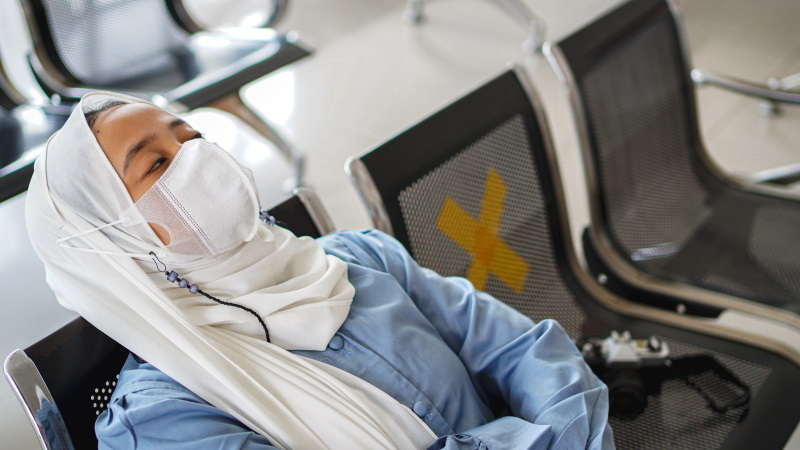Why Millennial Parents Are Becoming The Burnout Generation
by on 06/01/2022 ...

Not Just Another “Snowflake” Syndrome
A Medical Syndrome
For the past two years and counting, many working parents have been hammered by the stress of a myriad uncertainties. A new report has found that 66 percent of working parents are burned out – “means they are so exhausted by the pressure of caring for their children, they feel they have nothing left to give,” as explained in The New York Times.
Burnout has been recently legitimised as a medical syndrome, according to World Health Organization. Generally, one is diagnosed with burnout through symptoms, such as extreme tiredness (fatigue), increased psychological distance, as well as reduced professional efficacy. Parental burnout, on the other hand, is attributed to parenthood experience, rather than workplace stress for the normal burnout. Nevertheless, these two types of burnout share many similar traits—extreme fatigue and exhaustion, emotional detachment, and feelings of inadequacy. Today, parenting is almost always associated to feeling overwhelmed and discontent, leading to a full-on parental burnout when the symptoms or stresses are prolonged. However, contrary to having a career that triggers burnout, parenting isn’t something that can be quit.

The Joys and Sorrows of Parenthood
Yes, every parent loves their children, but you’re not alone if being their parent wears you out. Having kids feels like running a race you can’t win against a clock you didn’t set. When parents are asked to be candid about their parental experience, many of them would paint another picture. While there is a lot of joy in parenthood, it is not unusual to feel beaten with negative emotions and stress—anxiety, confusion, frustration, and depression.
Parental Burnout
Chronic parenting stress can lead to a parental burnout, forcing the parents to feel detached from their children and doubtful of their parenting abilities. The vision of a perfect marriage is an encumbrance, especially when coupled with workplace stress. Most—if not all—parents or parents-to-be will face the dilemma of juggling a career and family. According to Natasya Zanudin, who’s at 34 weeks pregnant, experiencing all the changes that come with pregnancy has been mentally, physically and emotionally challenging. Apart from learning to be a wife, which requires continuous effort, she would now have to learn how to be a mother; this is no easy feat.

FOMO (Fear of Missing Out)
Other factors that contribute to burnout is when we are overinvested in our jobs due to our precarious financial situation. We’ve all heard the statistics; more millennials are living with their parents than with a roommate. The circumstances we live in now are in more dire than most people realise (or care to admit). Fear of missing out means that the millennial generation has to work twice as hard, whether at work or at home. Oftentimes, they are afflicted with the “grass is greener” syndrome. When asked, Nadia Fariha and Shabirah Afina said juggling work, study and family has compelled them into experiencing constant life stresses.
Meeting Expectations
To keep up in this fast-paced world, we try to meet the expectation of others, making it the root or hidden cause of burnout. Parents also encounter this type of burnout, and it can have serious consequences for both the parents and the child. From various researches done, it was learnt that there have been many cases where young parents, in particular, who experience burnout will have an increased risk of neglect and violence towards their children. Consequently, this creates parental neglect and escape ideation (i.e., thoughts on escaping), which appear to be clear consequences of parental burnout. Nevertheless, the robust pattern of results suggests that there are important lessons to be learnt from these findings, the researchers say. Parental burnout can have detrimental effects on the children. That being said, parents can still learn how to enjoy the often exhausting role of parenthood.



































